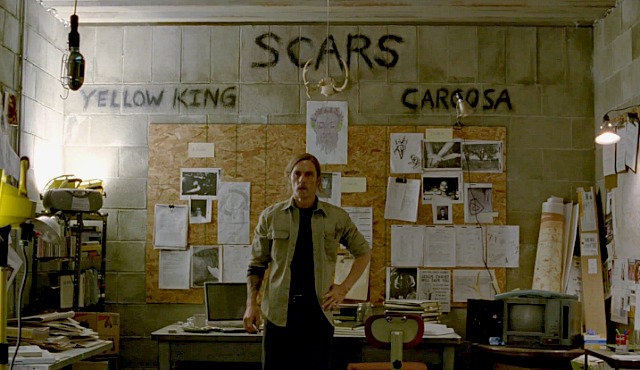Click through for full-size gallery.
Monthly Archives: March 2014
The Innocent & The Damned
Click through for full-size gallery.
Film Capsule: The Art of The Steal
Last night I watched The Spanish Prisoner, and was reminded of this truth regarding David Mamet’s heist films: There are always gaping plot holes, and those holes don’t seem to matter. This is the result of first-class writing, taut suspense, and a storyline much broader than the flaws inside its wake.
Art of The Steal is not a David Mamet movie. But it is a mainstream heist film … one so caught up in its own conceit it squanders all its currency on improv. At its center is a takedown crew, completely capable of world-class scores. Only Jonathan Sobol turns his lead cast into morons, bumbling through a bloated script that’s overrun with trite cliches. Set along the all-time heist movies – The Killing, Dog Day Afternoon, Thief, Quick Change, Reservoir Dogs, The Usual Suspects, Heat, The Score, Inside Man, The Prestige and Before The Devil Knows You’re Dead – Art of The Steal is nothing more than methane gas and white noise. It approaches every plot twist like a pratfall, posing set-ups with the bombast of a slick peel on the ground.
Editor’s Note: Kurt Russell plays a character named Crunch in this movie, adding to a resume that boasts the likes of Stuntman Mike, Bull, Snake, Cash and … Snake.
(Art of The Steal opens in limited release this Friday.)
Henry Miller on Writing About The Immoral (1975)
“One reason why I have stressed so much the immoral, the wicked, the ugly, the cruel in my work is because I wanted others to know how valuable these are, how equally if not more important than the good things … I was getting the poison out of my system. Curiously enough, this poison had a tonic effect for others. It was as if I had
given them some type of immunity.”
(Excerpted from the Rolling Stone article, “Reflections of a Cosmic Tourist“)
‘True Detective’: A Working Theory
 (Please Note: Spoilers abound. If you’re not up to date, probably best to hold off.)
(Please Note: Spoilers abound. If you’re not up to date, probably best to hold off.)
The entire thing’s laid out bare during that “throwdown in the woods” – murder, mayhem, mystics, a pair of unreliable narrators … sex, death, dosing, drugs, a war-time jungle full of tripwires. This is True Detective making its real intentions known – six is nine and up is down … the world has blurred both right and wrong.
Carcosa, The Yellow King, a corpse with antlers, the Man With Scars … True Detective represents a bold new level in anthology, one solution to a problem that’s plaguing good TV for several years. Namely, what does one do after the mystery’s exhausted? Well, assuming you’re the producers of True Detective, American Horror Story, or even the upcoming Fargo, the good news is, renewal’s part of the equation. The bad news is, no brilliant character lasts long.
In that spirit, the eight-week odyssey of Rustin Cohle – and, by extension, Martin Hart – will come to an end this Sunday evening. A tragedy if for no other reason then we’ve learned so little about Rust Cohle. His records are redacted, his memory astir, his daughter’s death’s labeled a blessing, despite the fact we’re still unclear as to what occurred.
We first meet Cohle working a crime scene, the ritual murder back in 1995. We quickly learn that he’s obsessive, intellectual, convinced of nothing but his own beliefs. We learn that Cohle’s a skeptic, anti-Christian, that he meditates about surrender in Gethsemane. We learn that Cohle’s methodical, amphibian, capable of manipulating any motive toward his purpose. He’s positioned as a martyr, an anti-hero, a pair of archetypes we’ve been conditioned to adore. He’s got no past, no home, no family, no account of where he’s been between late childhood and 30 (nudge, nudge). His arrival in Louisiana sets the earth on fire, linking God and Satan’s fury to a murder in the woods.
What we’re looking at is one man’s creation of a bogeyman, an imaginary monster inciting fear as control.
Consider Marty Hart, a southern Christian (like both proven victims), prepared to place his faith in Cohle once more. Marty now resembles Cohle – detached from his profession, forever estranged from both his wife and daughters. Rust Cohle played a major part in that, quietly stripping Hart of all he owned. Worst of all, he’s got poor Marty back to drinking, slow-dosing him with subterfuge toward a big fall down the road.
What we may be gearing up for is the coup de grace of one man’s long crusade – a holy war against religion, against a God who’s led mankind astray. It’s a commentary on our culture, on the manufacturing of monsters as a means of mass control. And you can bet Rust Cohle will find himself inside Gethsemane, where he’ll surrender to the guards once more.
(The final episode of True Detective: Season One premieres Sunday at 9 pm on HBO.)
